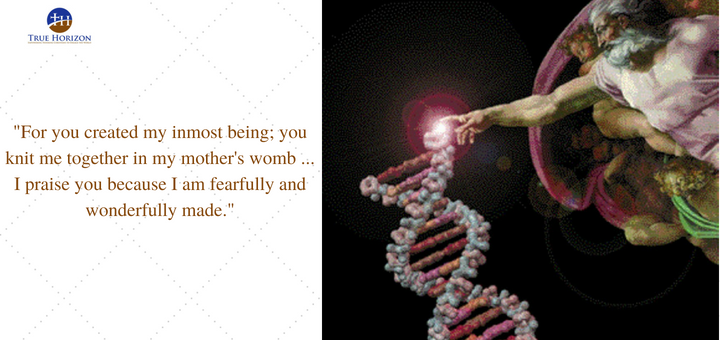Clarifying Creationist Positions
Recently, I accepted the challenge to debate a fellow Creationist about whether the Christian view of reality supports and Old Earth (OE) or Young Earth (YE) view. Part of what I promised my debate opponent (Tim Chaffey of Answers in Genesis) was that I would provide some level of information about the approach I would take to our discussion. I have had the luxury of reading his book on the subject. My views are not unique. But it only seems fair to at least allow him the courtesy of knowing how I think. This is the first installment of that commitment.
Taking A Stand
First, I do not agree with those who refuse to take a stand on the subject. I understand admitting if you are uninformed and want to learn more about it. That’s fine. What I find objectionable is the well-educated apologist who plays the middle. These folks will say things like, “I guess you could say I’m an OE guy 4 days-a-week and a YE guy three-days-a-week.” They don’t want to offend anyone.
I think that’s a copout.
One of the most basic concepts in logic is the Law of Non-Contradiction. This law of logic says that two contradictory propositions cannot be true in the same way at the same time. The earth cannot be both old and young. In other words, either Mr. Chaffey is wrong or I am wrong. Those are the only two choices.
Respectful Pursuit Of The Truth
That does not mean we have to disrespect one another. Too many fellow Christians on both sides of the debate have done that. But it does mean we are both obligated to make a compelling case for our respective positions. I think the evidence is crystal clear. The OE view represents the obvious facts about the way the world is. That’s why I believe it.
Philosophers have a definition for when a belief corresponds to the way the world actually is. It’s called Truth. I don’t defend the OE view to defend science. I’m not trying to uphold some doctrine of the church. I hold to the OE view because I think it’s true. The Bible compels us to always seek the truth.
A Far Greater Issue
The side you take in this controversy will lead to monumental consequences in the way you approach not only the Genesis creation account, but God’s very nature. It also affects how you interact with and approach a world that is skeptical of the Christian faith. Each of us has a duty to defend that faith (1 Peter 3:15). We are supposed to offer reasons for the hope that we have in Christ. We are commissioned to take that case to others. If the view we are defending makes no sense of the world as we find it, people will see through that. We cannot expect them to accept Christianity if doing so forces them to embrace an obviously false concept about the way the world is.
With that brief setup, let me clear a few things about the Old Earth view
What OE is Not
Acceptance of Evolution
Yes, some OE defenders also accept Darwinian Evolution. That doesn’t mean they all do. Just to be clear, I reject the very idea of Darwinian Evolution. I don’t say that because I think “evolution” is a dirty word. I don’t say that because I am “anti-science.” I reject Darwinism for two basic reasons.
First, it is completely contradictory to what Scripture says about God’s relationship to His creation. This includes what has become known as Theistic Evolution (TE). TE is an oxymoron. It invokes two contradictory notions: 1) that all life came about as the result of the undirected, purposeless process and, 2) that this process was (at some level) directed by God. Got it? As John Lennox points out, this is self-defeating. It lies in direct opposition to the fact that each of God’s creative acts begins with the phrase, “And God said.”
Second, I see no evidence to support Darwinian mechanisms. They cannot explain:
- The origin of the universe
- The design of the universe
- The origin of life
- The diversity of life
- The fossil record
- Mind/body dualism
- Consciousness and self-awareness
- The information content in the cell
- Morality and ethics
Other than these, I guess it’s just great! But, seriously, what do all these things have in common? Just that they are the most important things we can talk or think about. Darwinian theory cannot begin to explain them, even in principle.
In summary, the YE attempt to cast OE proponents as “evolutionists” is an intellectually dishonest representation of their position.
Capitulation To Modern Science
The OE view respects science taken in its proper perspective. That is, it understands that science needs to be understood in light of the Christian worldview and objective reality. The scientific method was developed by Christians. Those who did so thought the world was ordered, and rational, and understandable precisely because God created it.
It used to be that both religion and science were considered subsets of philosophy. What we now call science used to be called natural philosophy. Modernity tells us that science is the only “real” way to obtain truth. Unfortunately the YE view also effectively supports the split between science and religion. It claims that we can’t trust science because of the fall of Adam and Eve.
We should never agree to such a thing.
Science (from the Latin scientia: “knowledge”) is nothing more than the study of God’s natural world. God is not a part of nature. He transcends nature. He created nature. Therefore, science can no more disprove God than it can verify the plan of salvation. But science can do what science does — reveal the character of the Creator. In that way, science is a powerful, consistent testament to the truth of the Bible. It will never undermine or contradict Scripture. Instead, it should bolster our confidence in God’s Word.
Rejection of the Authority of Scripture
Critics of the OE view never waste any time declaring their emphatic defense of the authority of Scripture. I don’t blame them. There is no doubt that those who hold to a naturalistic view of reality, and some who hold to the OE view, do so in open defiance of the reliability, authority, and inerrancy of Scripture. I commend my YE friends for their insistence that this is unacceptable. I share it. So, let me say this as clearly and unequivocally as I can: The OE view I will defend absolutely believes in and defends the inerrancy of Scripture.
What OE Is …
Acknowledgment of Dual Revelation
I will go into it in greater detail in the next post, but let me just introduce the notion that God has written two books: Scripture and Nature. This is not some new idea that was constructed to allow modern science to push Scripture out of the way. It is not new at all. In fact, it was formally proclaimed in 1561 in the Belgic Confession, Article 2:
The Means by Which We Know God
“We know him by two means:
First, by the creation, preservation, and government of the universe, since that universe is before our eyes like a beautiful book in which all creatures, great and small, are as letters to make us ponder the invisible things of God: his eternal power and his divinity, as the apostle Paul says in Romans 1:20.
All these things are enough to convict men and to leave them without excuse.
Second, he makes himself known to us more openly by his holy and divine Word, as much as we need in this life, for his glory and for the salvation of his own.”
As alluded to in the Confession, this concept was not new when it was written either. It was first put forth in the book of Job (“listen to the animals and they will teach you …”), by David in Psalm 19:1-4, and by Paul in Romans 1:20. Nature is God’s revelation to us every bit as much as Scripture is. Both are true and inerrant displays of God’s character and purposes. Both need to be interpreted by fallen, errant humans, but the fact that our interpretation of either may be flawed does not erase the quality of the revelation itself.
A High View of Scripture and God’s eternal purposes
I will give more details of this later. For now, suffice it to say that some YE claims are heavily dependent on a single passage of Scripture. At the same time, they seem to discount or ignore the weight of other passages. This is especially true when dealing with the subjects of “death before the fall” and Noah’s Flood. This is not to imply that YE proponents are engaged in proof-texting. But they do seem to rely heavily on passages that support the YE paradigm while giving short shrift to those that weigh in against it. In contrast, those who defend OE defenders are happy to account for Scriptural passages that are relevant to any issue.
What we agree about …
That Adam and Eve Were Real People
Contrary to the claims of some, OE folds do not think Genesis 1-11 is mythological or symbolic. They believe that Adam and Eve were specially created by God just a few thousand years ago. Those who defend OE believe there are three separate age issues at play in this debate:
- The age of the universe
- The age of the Earth
- The length of time human beings have been on the scene
The YE view lumps all three of these together. This is based on an assumption that is the central issue in the debate.
An analysis of the various Biblical genealogies plainly shows that there is a direct, unbroken chain of ancestry that connects us all to Adam and Eve. Neither of us doubts that this was just a few thousand years ago. It is easy to demonstrate that there are gaps in this genealogy. But even with that, we cannot attribute more than a few thousand years discrepancy to the origin of humanity.
That said, genealogy cannot account for the age of the Earth or the universe. In order to claim it does, one has to insist that the “days” of Genesis 1 are 24-hour solar/calendar days as we experience them today. But this is not something we can assume by claiming that it is a “clear, straightforward” reading of Scripture. The OE view simply says we can’t ignore what God’s Natural Revelation has to say about the matter. There are other “literal” translations that agree with what modern science tells us.
What we disagree about …
The Length of Time That Transpired Before the Appearance of Adam and Eve
But as I studied the issues involved I felt a growing tension between the demands of the YE paradigm and the clear evidence that the universe we live in is much older than 6000 years. My honest efforts to resolve that tension led me to the OE view. And that is why we are having this debate.
I want to make it crystal clear that I appreciate the healthy, steadfast respect for the authority of Scripture that my YE friends demand. That is not an easy thing to stand up for in a culture that mocks and attacks God’s Word at every turn. But standing up for Scripture does not demand standing down from a passionate pursuit of all truth, including the truth God reveals to us through nature.
That is the subject of my next post.
Photo by Paul Skorupskas on Unsplash





One Comment